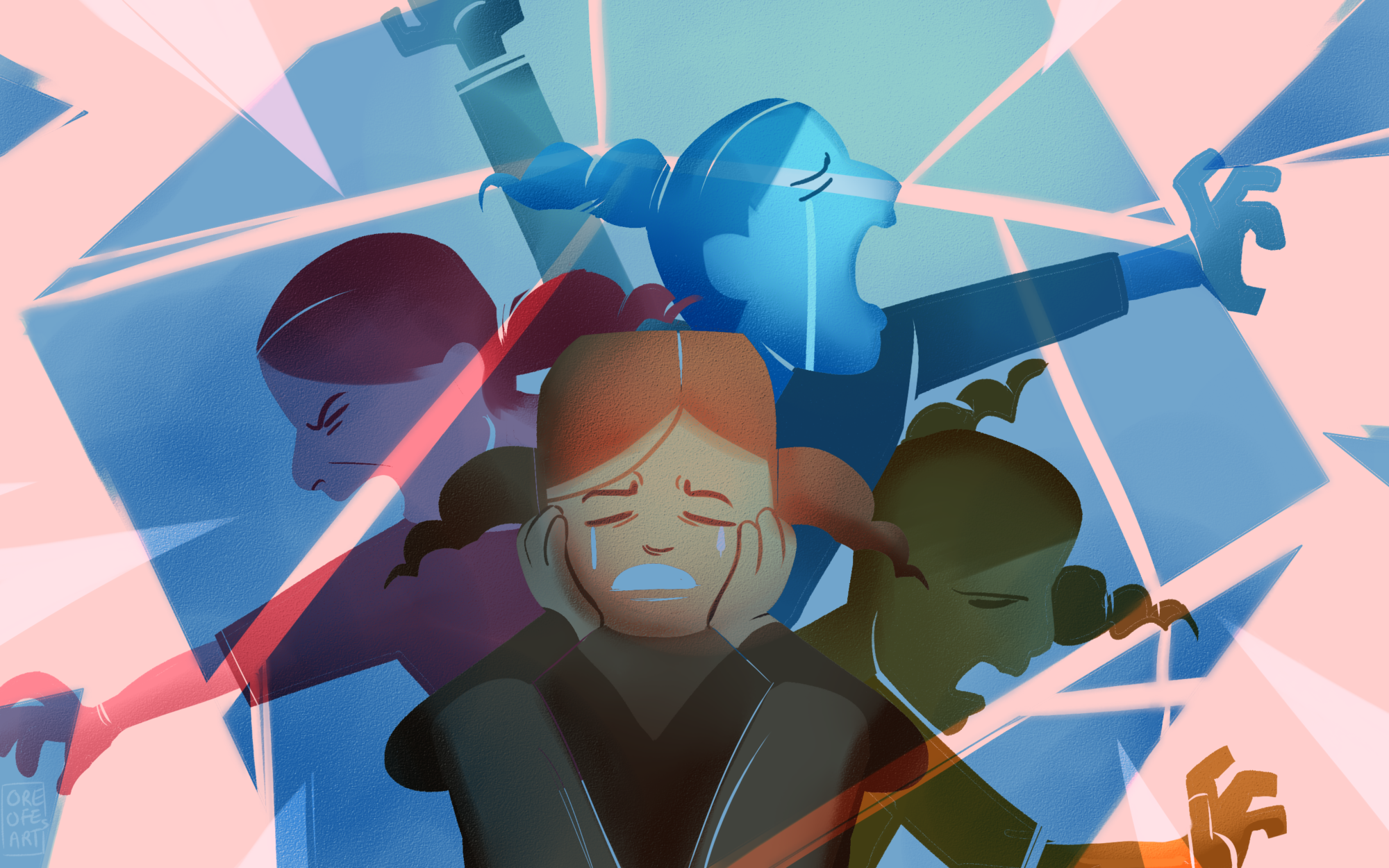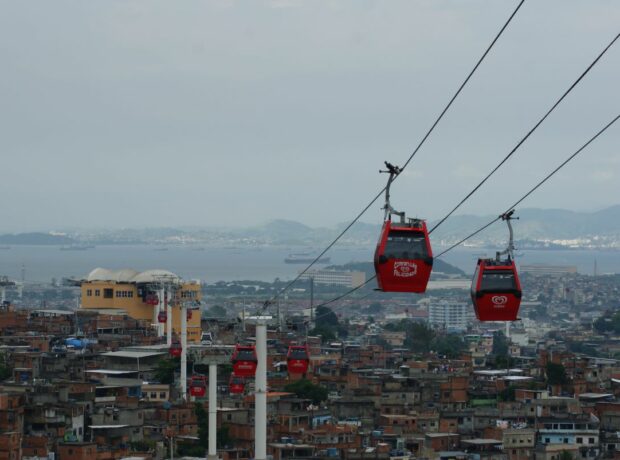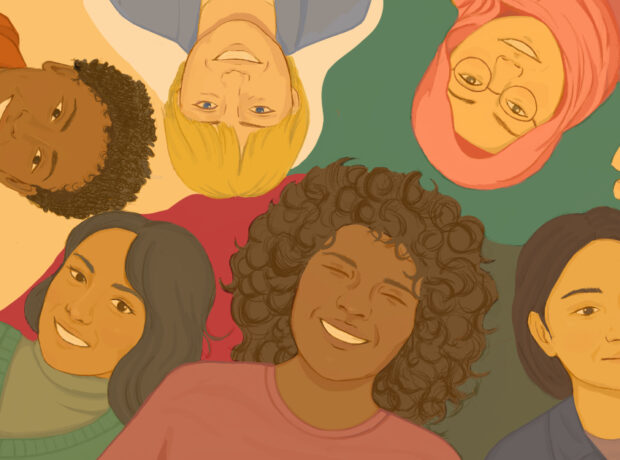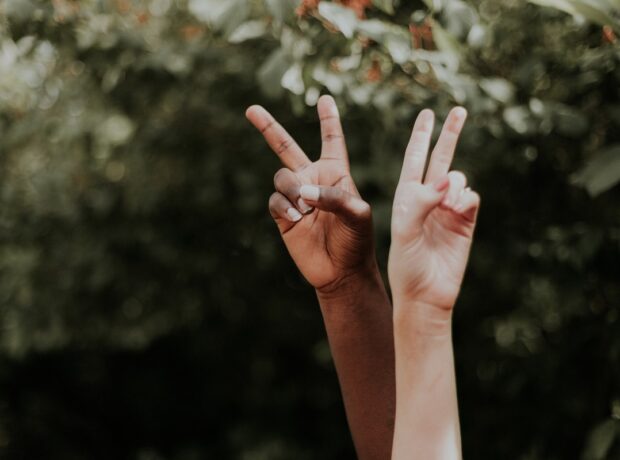No one in the UK has been untouched by the Covid pandemic. But what impact has Covid, the nationwide lockdown and other pandemic policies had on the social development and mental health of the UK’s most deprived young people? To find out, Amandas Ong speaks with young carers, asylum seekers and school pupils in Haringey, Blackburn and Newcastle.
It’s a cold March evening in the northern English city of Blackburn, and the sun has just set. 12-year-old Alayna* is waiting in the back of a car to be driven home. She has just left a meeting with a local charity, which has been organising regular sessions where she can meet and befriend other children her age who are young carers like her. Wide-eyed and with her dark hair in pigtails, Alayna speaks with a measured solemnness that is startling for her age. Occasionally, though, her eyes light up when she talks about the things she enjoys doing – which include reading, and “naughty things like eating sweets at school when we’re not allowed to”.
“During the pandemic, sometimes it was difficult not to be around people who understand what it’s like to go through what I do,” Alayna says. “I was angry a lot, because my friends at school don’t really get it.” She has a younger brother who is ten, and who has multiple disabilities including a behavioural disorder. For years, she has been assisting her mother in caring for him by preparing his food and reading to him.
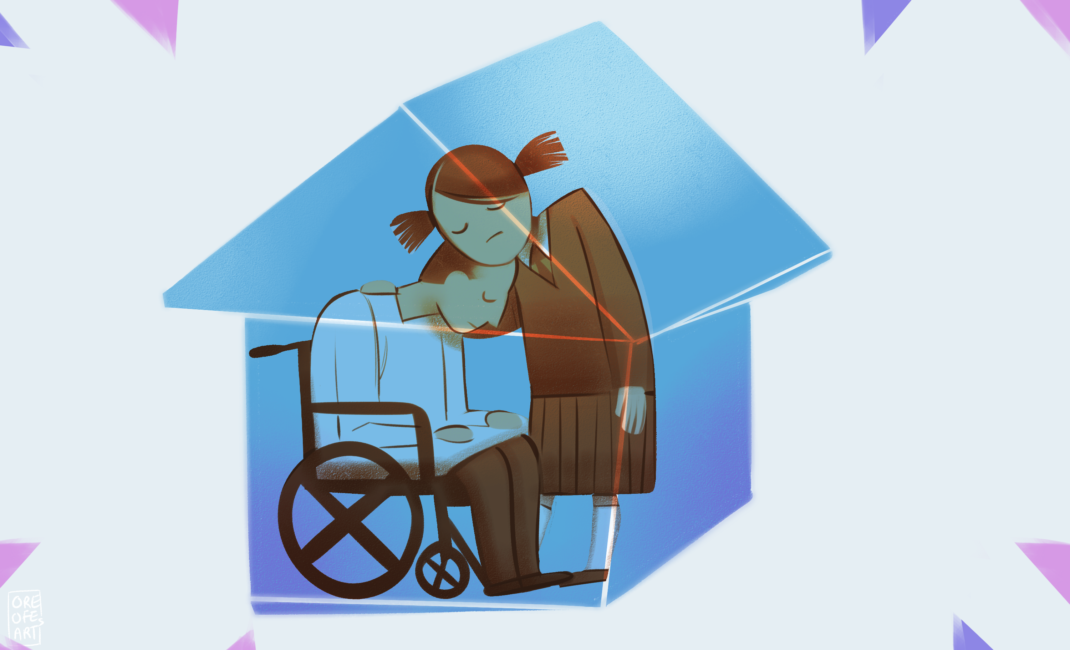
It was at the start of the first lockdown in 2020 that Alayna’s mother first referred her to the charity, Child Action Northwest, when without respite from her home situation, she was becoming “really stressed out and sad”. Two years on, she says: “I’m much happier now, and it’s easier for me to cope with my feelings about caring for my brother. He used to scream and shout a lot more, but he’s stopped doing it so much. I feel proud of him, but also sad that he has a difficult time compared to other children.”
Alayna is one of 800,000 children and young people in England between the ages of six and 17 who look after a family member with a physical or mental health condition, or who misuses alcohol or substances. According to the Children’s Society, even prior to Covid, many young carers had unmet needs affecting their emotional welfare. More than a quarter were missing school or had educational difficulties, with this number increasing to 40% if they are caring for a relative with drug and alcohol problems. They were also more likely to feel isolated from peers of the same age.
Until today, there is a glaring lack of data on the number of British children who have experienced social exclusion or detrimental impact to their mental health throughout the pandemic.
In the early months of the pandemic, the BBC’s corporate charity Children in Need produced a report suggesting that children from asylum-seeking or refugee families, ethnic minority backgrounds, young carers like Alayna, and those living in economically deprived areas were more likely to face challenges to their emotional wellbeing. These groups of children were also at higher risk of being exposed to abuse, not getting enough food, and being cut off from social support networks outside the home.
In addition, government statistics published in April this year suggest that young people between 16 and 24 in the poorest parts of the UK – such as Blackburn, where Alayna lives, and where two in every three children comes from a household below the median income – have undergone 3.4 times more psychological distress than those in the least deprived areas of the country. But the full extent of the damage done by Covid to the development of financially disadvantaged children and children at risk remains unknown.
“Some of these issues pre-date Covid,” says Sue Cotton, who is CEO of the charity where Alayna has been attending respite sessions. “Because of austerity, local authorities have been forced to focus on things that they need to do by law, like intervening when families are in crisis. But this also means there is so little funding for early intervention or preventative efforts to mitigate the levels of anxiety and trauma in young people. They can’t access state support until it is often too late and they really need it.”
One way to reach out to children who might need additional mental health care is to make it easier for their parents to access support. But doing this is not easy, nor is it a simple matter of getting people to phone a charity or free advice helpline. Ongoing research by the University of Oxford has indicated that refugees and asylum seekers, in particular, may face severe digital exclusion, as they may not have access to a device, or struggle to use vital services due to language barriers.
As such, in-person opportunities to identify children in need are crucial. About 250 miles south of Blackburn, in the London borough of Haringey, a group of mothers and their children under five gather every Wednesday in a church hall. This is a safe space for them to mingle and seek advice from mental health outreach workers and local community activists, while their children play. While these drop-in playgroups (organised by a local charity called CARIS Haringey) are open to all families, especially those living in temporary accommodation, it is almost immediately conspicuous that its attendees are predominantly female – mothers or grandmothers. When spoken to, most say that they heard about the playgroups through word-of-mouth. Several also express their anxieties over their children’s development.
Many of the women are asylum seekers or have just been granted refugee status. Often, they are staying with their children in shared housing provided by the Home Office, or with acquaintances and friends. A majority do not speak English and might have trouble communicating their needs in daily life, so CARIS helps to organise lessons for them. The room adjacent to the church hall is also full of donated clothing, home appliances and other paraphernalia, which parents and carers are encouraged to help themselves to.
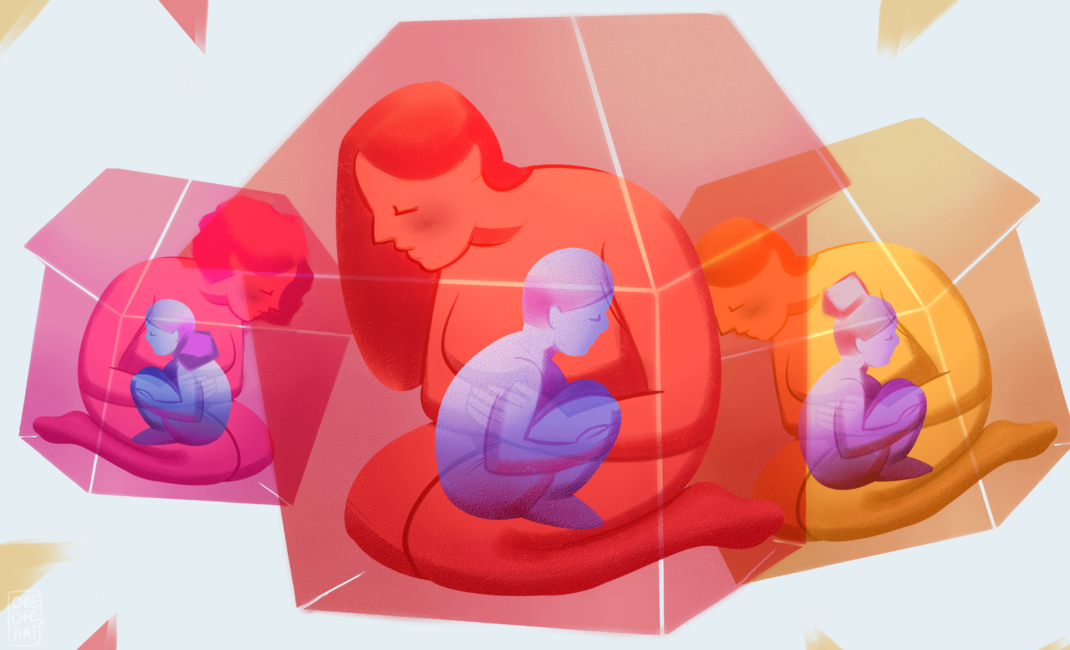
“The point is for participants to make friends, reduce the risk of social isolation, and offer them useful information and support especially if they’re struggling in everyday life,” says Tonya Mavri, a family support worker who runs the drop-in sessions alongside several other volunteers.
“In lockdown it became so much harder. If we couldn’t open the drop-in, it basically meant people weren’t able to get help.” Like Blackburn, Haringey also has one of the worst child poverty rates in the UK, with 42.4% of children living in households whose income is less than 60% of the national average.
Besjana,* 28, is a stalwart attendee of the drop-in centre. From the time her two-year-old son Abdyl* was born, she had started bringing him there whenever it was deemed safe to open, worried that lockdown was adversely affecting his learning. “I am scared for him,” she says. “He plays only by himself and doesn’t say a single word except ‘mama’. He cannot make eye contact with other people, even children.
“In Covid it was terrible. We live with our friend just down the road, and he had no chance to play with other children. He is now going for language therapy, but there’s no improvement. I just hope he starts talking a little bit.”
Besjana fears that the trauma she went through in the last few years was somehow passed on to her son. “I think all the pain, all the sadness, was absorbed by him when he was still inside me,” she says sadly. Originally from Albania, Besjana arrived in the UK in 2018, heavily pregnant and traumatised after escaping a sex trafficking ring in Italy. She had been lured there by a boyfriend, who had promised her a good administrative position that would pay three times more than her job as a teacher (according to the Organisation for Economic Co-operation and Development, the average salary for teachers in Albania in 2019 was around 6,000).
“I begged the doctor in Italy to give me an abortion when I found out I was pregnant,” she says, holding back tears. “I kept saying, please, I don’t want this. But now Abdyl is my whole life. I live only for him.”
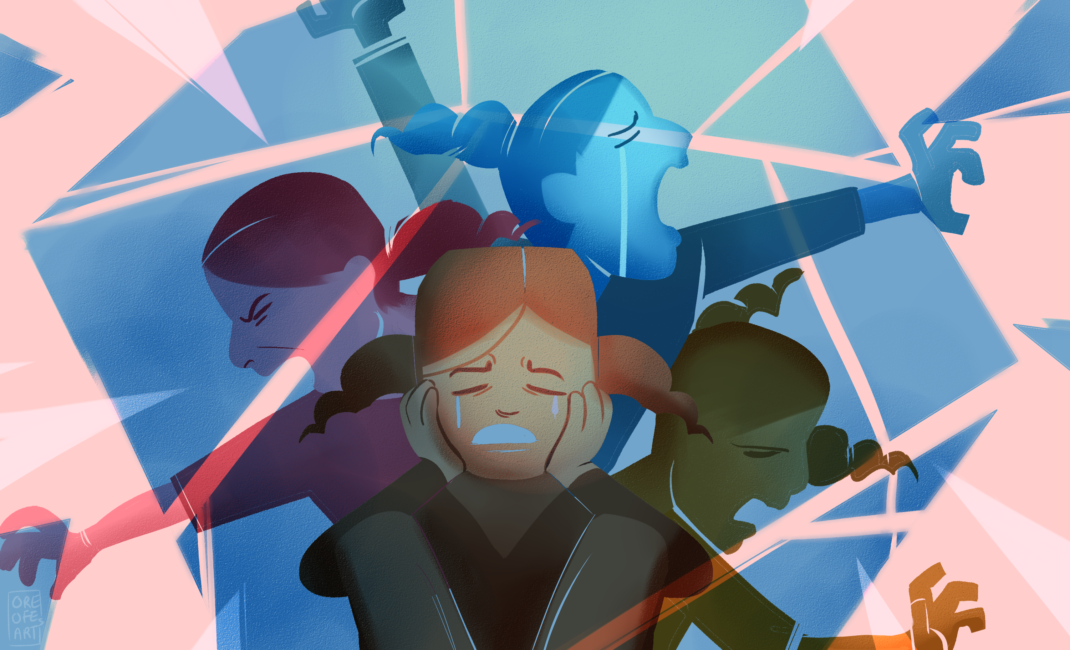
After fleeing from Italy, she had to deal with the added agony of being disowned by her family, except for her mother. “My brothers don’t want to talk to me anymore,” she says. “They are very religious. I was raped and so to them I am dirty.”
Now, she is studying to be a teaching assistant at a college near her home, although she struggles to make ends meet with her weekly allowance of only £39.65 from the government. Although she has been waiting for a decision on her asylum application for three years, she is legally unable to work. “All I want is to find a job now, and give Abdyl a quiet, nice, safe future, where he doesn’t need to worry about what to eat, and so he has a warm place to stay,” she says, clutching him to her.
Other asylum-seeking mothers at the playgroup, including 37-year-old Afia* from Ghana, share similar worries that the precarity of their existence is detrimental to their children’s mental health.
“I live in a hostel. It is difficult for us to sleep because it is noisy all the time and I worry about people walking into my room,” Afia says as her two-year-old son, Adam*, clings to her. “He is scared of everything,” she adds, “He doesn’t allow anyone to touch him, or he screams. I don’t know how things will be when he goes to nursery school.” Afia is despondent and feels like she and Adam are living in limbo: “We have been waiting one and a half years for our application to be approved. Every mother just wants their child to grow up happy. I don’t know if Adam is happy.”
One way of ensuring that children’s invisible needs are aired is to engage directly with them, and motivate them to identify concerns about their ability to cope psychologically with social exclusion and poverty as a result of Covid – and beyond it.
In Newcastle, an ambitious programme spearheaded by researchers from a charity called Children North East is underway, involving 72 schools and more than 31,000 children to date. The programme, Poverty Proofing, involves focus groups and conversations with pupils of all ages, and anonymously records the perspectives and insights of children regarding unseen inequalities within their time at school. This research is later shared with the schools, which then implement changes to ensure that meals, uniforms, school trips and extracurricular activities are fully accessible to children who may experience barriers to participation.
At a primary school in a village north of Newcastle, pupils take turns going to Poverty Proofing sessions in groups of six. The coordinator heading the sessions asks them about a number of topics, including school breakfasts. (Across England, 22.5% of pupils now qualify for free school meals, up from 20.8% in 2021 – representing about 1.9 million children.) “It’s 50p per week to get toast for breakfast. When we came back to school [after the first pandemic lockdown], I saw that some people weren’t getting breakfast in the morning. You don’t get food if you don’t bring the 50p, and I know someone who doesn’t tell the teachers because they’re embarrassed,” a ten-year-old boy pipes up.
The children also demonstrate a startlingly impressive understanding of social justice and the right to health and education. “I didn’t ask to be sent to school, and if we’re required to come to school, then our food should be taken care of,” a nine-year-old girl says, only half in jest.
Across all the focus groups, the pupils unanimously point out that a yearly school trip to an outdoor adventure park often draws attention to income inequality in deeply uncomfortable ways.
“Some of our friends have parents who lost their jobs during Covid, and they don’t have money [for the school trip]. It costs around £280, and if they have siblings, their parents have to pay twice or three times as much. It’s not fair for them,” explains the same nine-year-old girl, to murmurs of assent from her friends. “If they don’t come along, they’ll stay in school. I think they’re sad, even if they don’t tell us that. School trips should be for everyone, so we should find an activity that everybody can afford, or not go at all,” another boy in the same group adds.

It is difficult – outside of these smatterings of anecdotal evidence from around the country – to fully understand the repercussions of Covid on the social exclusion of children from poorer households, or from families with unmet needs. Research done by the Department for Education in 2020 implies that high quality early childhood education and care has an enduring, positive impact on the children’s outcomes: in particular, two-year-old children from economically disadvantaged families were shown to have made the largest improvement in their cognitive and socio-emotional skills when allowed to enrol in early education programmes. As such, the repeated lockdown and school closures over the last two years will no doubt have negatively impacted some of the youngest children across the country, particularly those from poorer households and who were born just before Covid hit.
With the most recent pre-pandemic statistics showing that 4.3 million children in the UK live in poverty, more funding urgently needs to be channelled towards recognising and meeting the complex variety of their needs. As a paper funded by the Economic and Social Research Council suggests:
“there is a need to think beyond conventional and recognised categories of vulnerability. We need to think about risk both clinically and socially, and recognise complexity. Some forms of need may be invisible at a moment in time and others may be forgotten. Needs will also fluctuate over time as the full impact of children’s diverse and complex experiences emerge.”
But until more in-depth work is done on the subject, it is safe to assume that there needs to be policy reform to protect children most at risk from social exclusion – and in turn diminished life chances.
*Names have been changed.
All illustrations by Oreofe Morakinyo.
Reporting for this project was supported by the National Geographic Society’s COVID-19 Emergency Fund for Journalists, for local coverage of the preparation, response, and impact of the global pandemic.
Read more:
